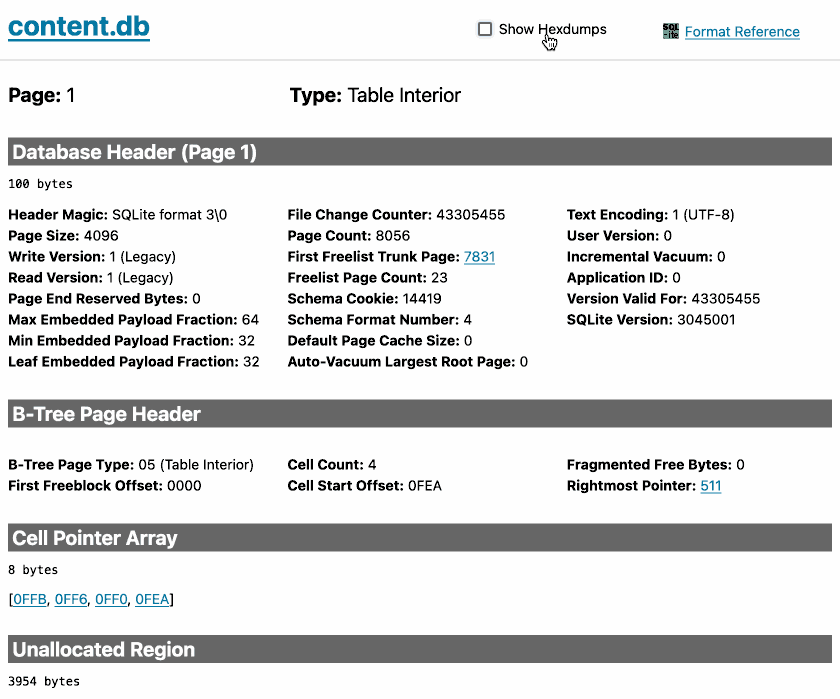7 posts tagged “cosmopolitan”
2025
sqlite-page-explorer (via) Outstanding tool by Luke Rissacher for understanding the SQLite file format. Download the application (built using redbean and Cosmopolitan, so the same binary runs on Windows, Mac and Linux) and point it at a SQLite database to get a local web application with an interface for exploring how the file is structured.
Here's it running against the datasette.io/content database that runs the official Datasette website:

2023
llamafile is the new best way to run an LLM on your own computer
Mozilla’s innovation group and Justine Tunney just released llamafile, and I think it’s now the single best way to get started running Large Language Models (think your own local copy of ChatGPT) on your own computer.
[... 650 words]djngo.com: Portable Django (via) “A 20mb executable zip file with Python 3.6 and Django 2.2. Works on Windows, Linux, MacOSX with x86_64 and aarch64 (yes, Apple M1 and Raspberry Pi).” The latest wizardry from the ecosystem surrounding the Cosmopolitan project, which provides a should-be-impossible mechanism for running the same executable on a bunch of different platforms. This utility by Ariel Núñez bundles Python and Django and SQLite, such that a Django application can become a portable executable ready to run on multiple platforms. It’s currently limited to Python 3.6 and Django 2.2 since those are the versions that run under Cosmopolitan, but I expect we’ll see more recent versions of those dependencies in the future.
2022
Cosmopolitan: Compiling Python. Cosmopolitan is Justine Tunney’s “build-once run-anywhere C library”—part of the αcτµαlly pδrταblε εxεcµταblε effort, which produces wildly clever binary executable files that work on multiple different platforms, and is the secret sauce behind redbean. I hadn’t realized this was happening but there’s an active project to get Python to work as this format, producing a new way of running Python applications as standalone executables, only these ones have the potential to run unmodified on Windows, Linux and macOS.
Fullmoon (via) A “fast and minimalistic web framework” written in Lua, based on Redbean. The documentation for this is fantastic, and because it uses Redbean the development experience is to download the Redbean executable (which runs on every platform) and then drop your own Lua scripts into it using zip.
redbean (via) “redbean makes it possible to share web applications that run offline as a single-file αcτµαlly pδrταblε εxεcµταblε zip archive which contains your assets. All you need to do is download the redbean.com program below, change the filename to .zip, add your content in a zip editing tool, and then change the extension back to .com”.
redbean is implemented as a single C file with a dazzling array of clever tricks—most impressively, the single executable works on Linux, macOS, Windows and various BSDs!
It embeds Lua, and in June last year added SQLite too—so self-contained distributable web applications built with Redbean can now use Lua and SQLite for dynamic scripting. Performance sounds incredible: “redbean can serve 1 million+ gzip encoded responses per second on a cheap personal computer”.
2021
cosmopolitan libc (via) “Cosmopolitan makes C a build-once run-anywhere language, similar to Java, except it doesn’t require interpreters or virtual machines be installed beforehand. [...] Instead, it reconfigures stock GCC to output a POSIX-approved polyglot format that runs natively on Linux + Mac + Windows + FreeBSD + OpenBSD + BIOS with the best possible performance and the tiniest footprint imaginable.” This is a spectacular piece of engineering.
